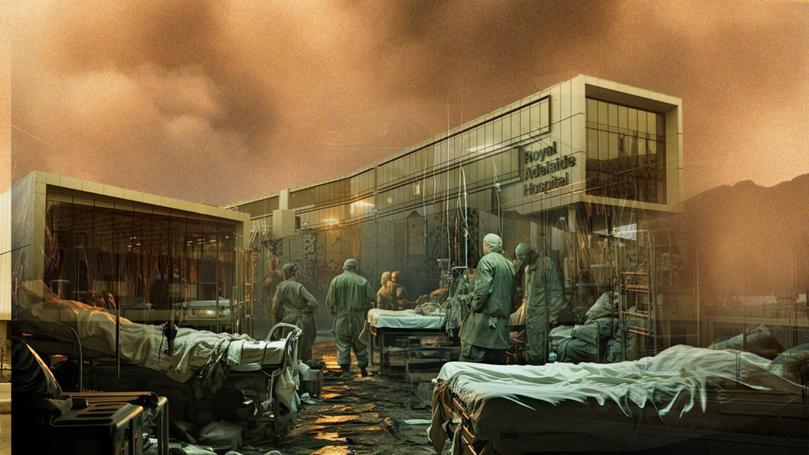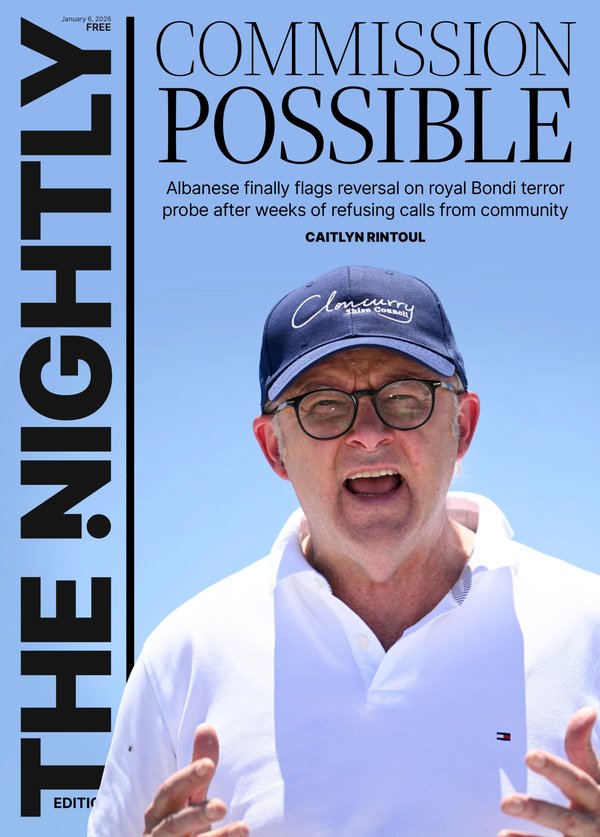MIKE SMITHSON: Fed-up staff attacked in ED ‘war zones’ leaving in droves as mental health crisis deepens

South Australia’s under-siege major public hospital and its ED have earned dubious new titles.
Staff at the Royal Adelaide Hospital have alarmingly declared the emergency department a war zone.
That’s a massive call for any hospital’s frontline interface with the public, especially coming from workers fearing for their own safety.
Sign up to The Nightly's newsletters.
Get the first look at the digital newspaper, curated daily stories and breaking headlines delivered to your inbox.
By continuing you agree to our Terms and Privacy Policy.It follows three attacks on hard working staff in less than a week by patients with glaring mental health problems.
That doesn’t come as a surprise with these facilities stretched to the limit and staff reporting high intensity patients are being held in emergency department bays for up to 30 hours waiting for mental health bed admissions.
Staff and union concerns came to the head this past week for good reason.
On Tuesday a young female patient went on a rampage and now faces three assault charges.
The injuries inflicted on clinical staff are totally unacceptable in any workplace, let alone a hospital setting designed to be calming and healing.
A security guard was knocked out, a nurse suffered shoulder injuries and, almost unbelievably, a doctor needed plastic surgery after nearly having her ear bitten off.
EDs across Australian capital cities face ever increasing, demand, patient traffic, and frustrations.
The Queen Elizabeth Hospital, in Adelaide’s north-western suburbs, has just opened a new ED which was immediately full beyond capacity.
Ambulance ramping is rife at most of SA’s public hospitals meaning patients are left waiting to access emergency departments, because bed block at the backend means there’s a log jam of sick people waiting to be admitted.
That problem is often caused by aged care patients with nowhere else to go, so they stay put in the same hospital bed for days or weeks.

So, it’s a Catch-22 with no immediate end in sight.
Perhaps this new red alert and the horrific injuries suffered by staff, who must be wondering why they chose this career path, have prompted long overdue action.
RAH security has been doubled since the recent spate of violence in the ED.
Five extra trained guards are now rostered once 6pm ticks around and the nightly patient surge kicks into top gear.
They can appropriately restrain patients as they see fit.
More personal duress alarms are being rolled out to protect staff, with bewildered patients often left with enormous stress from witnessing the growing violence.
More trained mental health specialists are also on duty.
It’s an urgent and necessary strategy, but will it solve the bigger issue of a crisis within a crisis?
I think not.
Governments need to realise that front-line clinical staff are in dwindling supply.
Experienced operators are flooding out of the public system.
Personal friends, who have long worked in the health sector, have called time on their careers because early retirement is far more preferable than the alternative.
You can’t buy the experience which is marching out the door.
It’s become clear that mental health is the ticking time bomb of modern medical care.
There clearly isn’t enough supply to cope with increasing demand.
Nursing staff shortages regularly mean eight-hour shifts are extended with little choice for those in the direct firing line.
That flows onto existing staff having fewer days off for rest, with greater fatigue.
Inevitably, exhausted staff then report in sick, compounding the existing problem.
The nursing union has suggested a novel approach.
It urges the implementation of 12-hour shifts, claiming that would lead to more consecutive rostered days off, better roster scheduling and more quality family time.
In challenging times any idea is worth considering, even with the resulting budget implications.
Nurses would welcome a new structure rather than unscheduled double shifts which take a heavy toll on all workers and their families.
Who knows exactly what’s behind the current mental health epidemic?
Drug addiction, alcohol, domestic violence, family break ups or cost of living problems may all be contributors.
None of those factors is going away anytime soon.
It’s hard to keep, let alone recruit, quality staff in the numbers required.
Let’s hope that the looming time bomb doesn’t explode before a long-term solution is found.
Mike Smithson is chief reporter and presenter with 7NEWS Adelaide.
